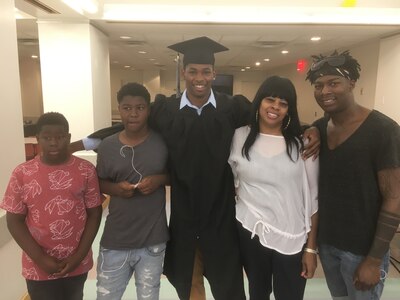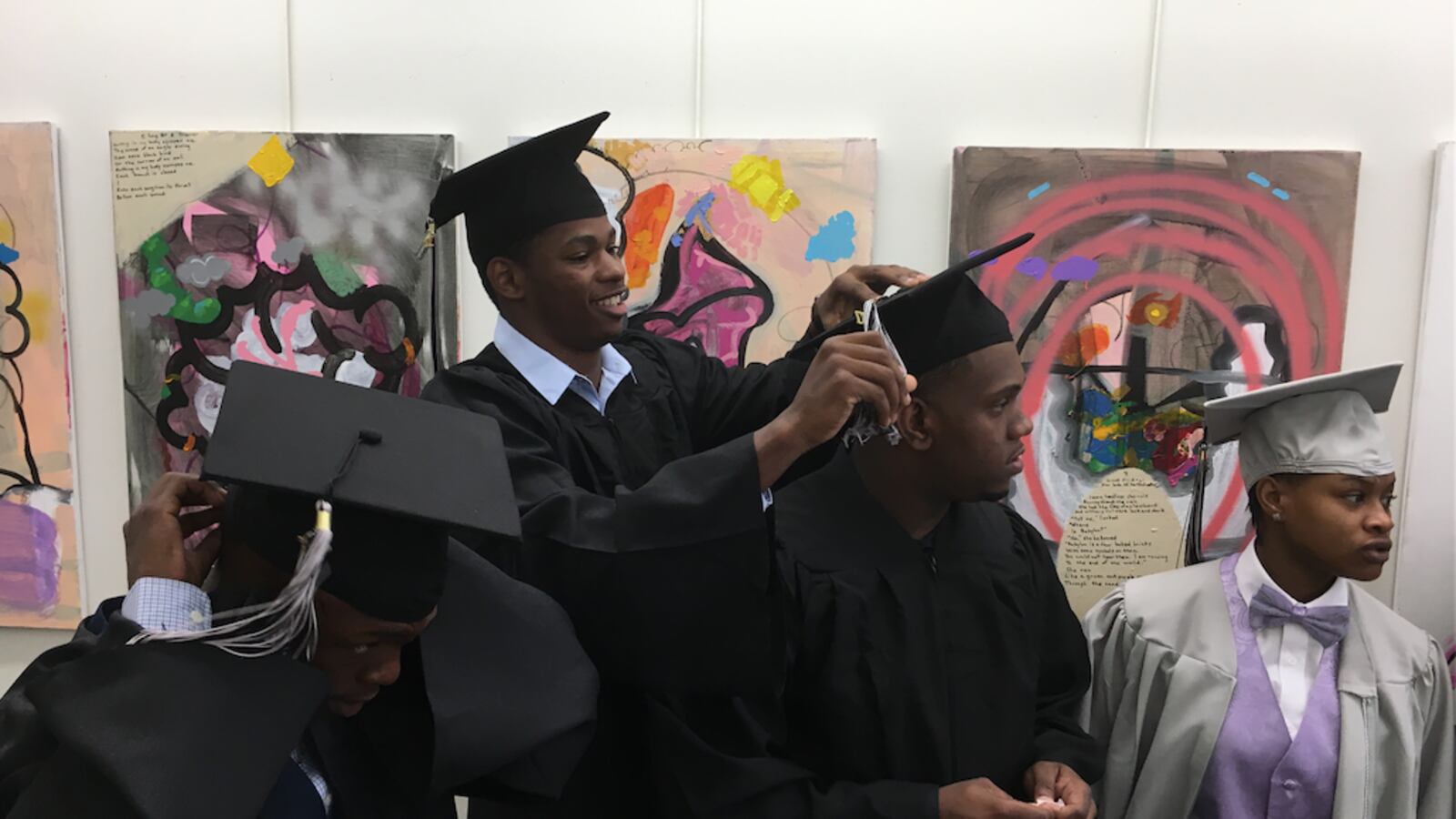Jahrell Thomas didn’t expect to graduate high school.
Though he initially liked his school, Manhattan’s Leadership and Public Service High School, he quickly lost interest, often wandering out of class to hang out in the hallways.
By sophomore year, he had joined a gang. “I was outside late and the people that I was with said, ‘Do you do you want to go beat someone up to be in this gang?’ And so I had to actually beat the person up, and I joined the gang that night,” Thomas recalls. He often spent his time roaming the streets, drinking and picking fights.
So when the 19-year-old showed up at Brooklyn Democracy Academy, an alternative school for students who are older and have fallen behind, he didn’t have high hopes. “I was like, ‘No, I’m not going to graduate,” he said.
But on Monday, with his mom watching from the audience, the now 21-year-old earned a diploma — along with roughly 50 other classmates who struggled at traditional high schools.
Thomas and several of his classmates credited Brooklyn Democracy Academy — which is run as a partnership between the city and the Jewish Child Care Association — with getting them over what once seemed like insurmountable hurdles.
The Brownsville school is one of several dozen “transfer” schools across the city that exclusively serve students who are over-age and behind in credits, pairing each student with an advocate-counselor who helps shepherd the student through high school.
The individual support, smaller class sizes, and being around classmates who have experienced similar setbacks, some students said, helped them get back on track. “There are challenges,” said Delisa Stoner, who also graduated Monday, “but they help you out.”
Democracy Academy tries to ensure that it only enrolls students who are committed to doing their best to graduate: Students and their guardians must interview to gain admission.
Despite his commitment to the school, Thomas is quick to admit that his path to graduation wasn’t entirely smooth. Janelle Tinsley, who served as Thomas’s advocate-counselor — coaxing him to school, or offering advice — noted that staying on track has been difficult. “It was a real, real fight to the end,” she said.

The school’s staff also acknowledge some challenges. Attendance and reading scores could use improvement, said Cherise Littlejohn, a program director with the Jewish Child Care Association who works in the school. But, she adds, “From where and how the students come in, I think we’re doing pretty well.” (At 56 percent, the school’s graduation rate is above average compared with other alternative schools.)
Through a grin, Thomas said he will attend Southeastern Community College in Iowa next year, where he landed a full basketball scholarship.
“It was a straight grind, senior year,” he said. “But I just said, ‘You can’t give up, you can’t give up.’”

